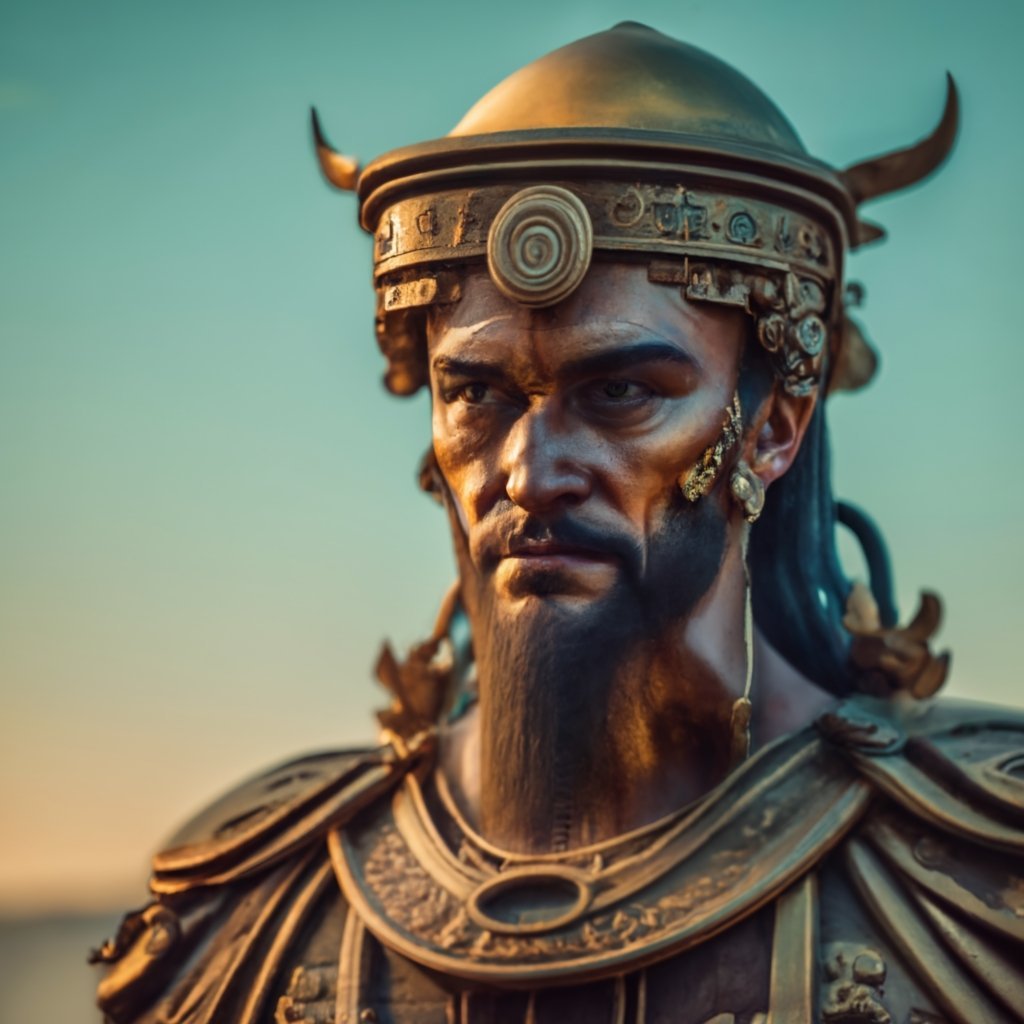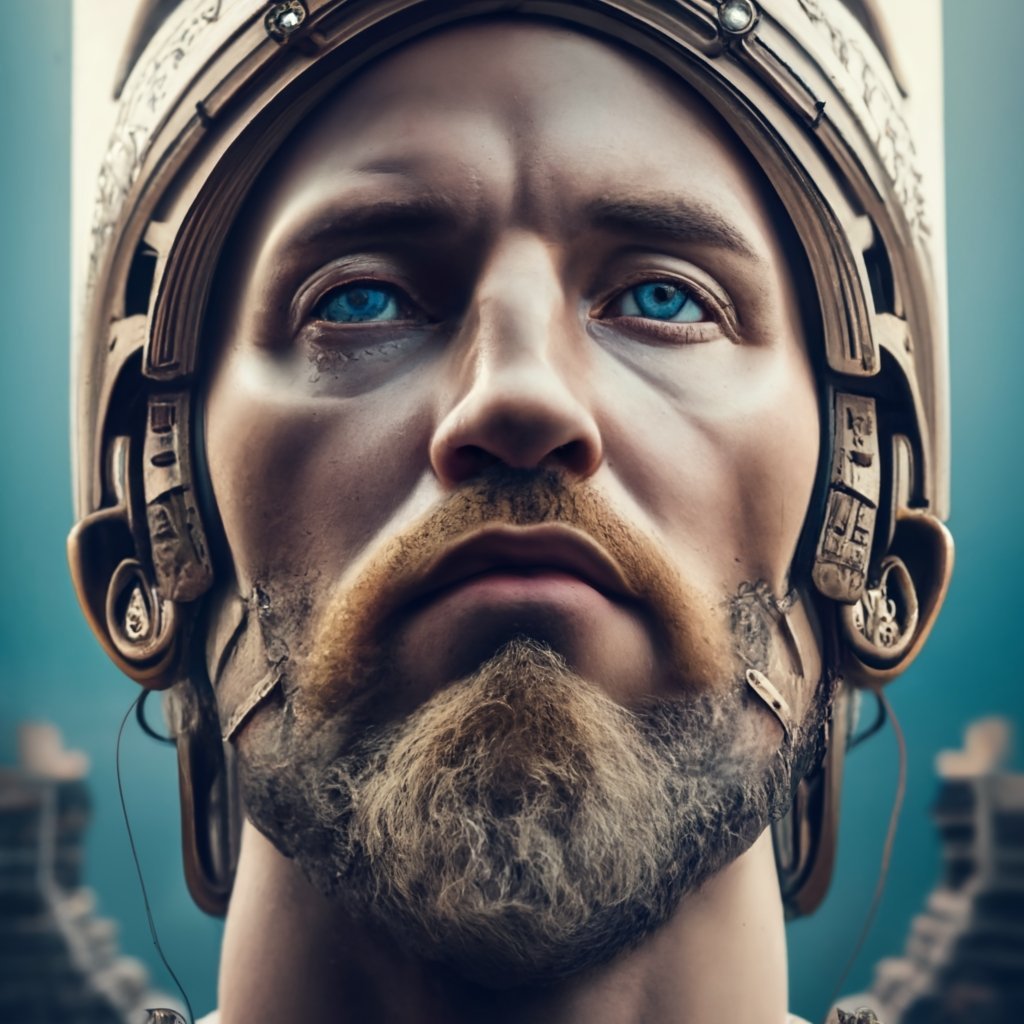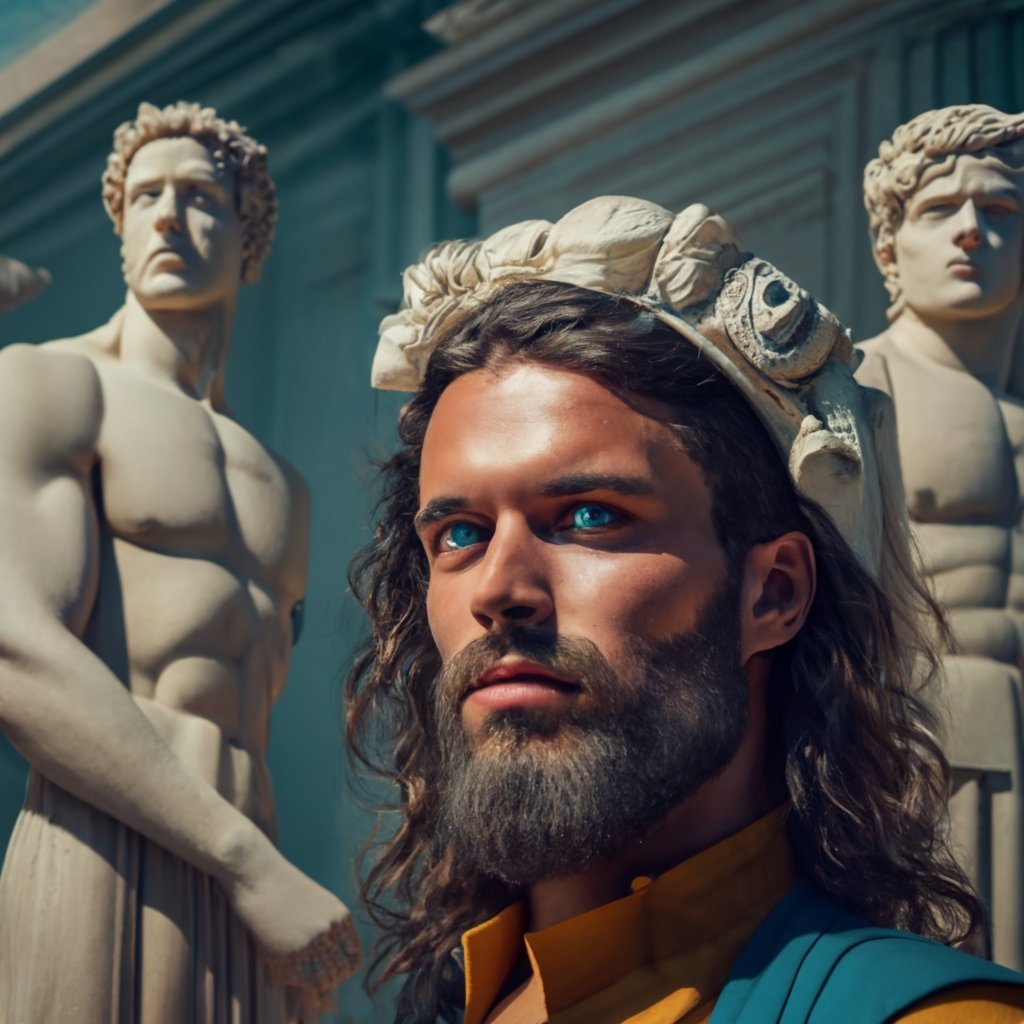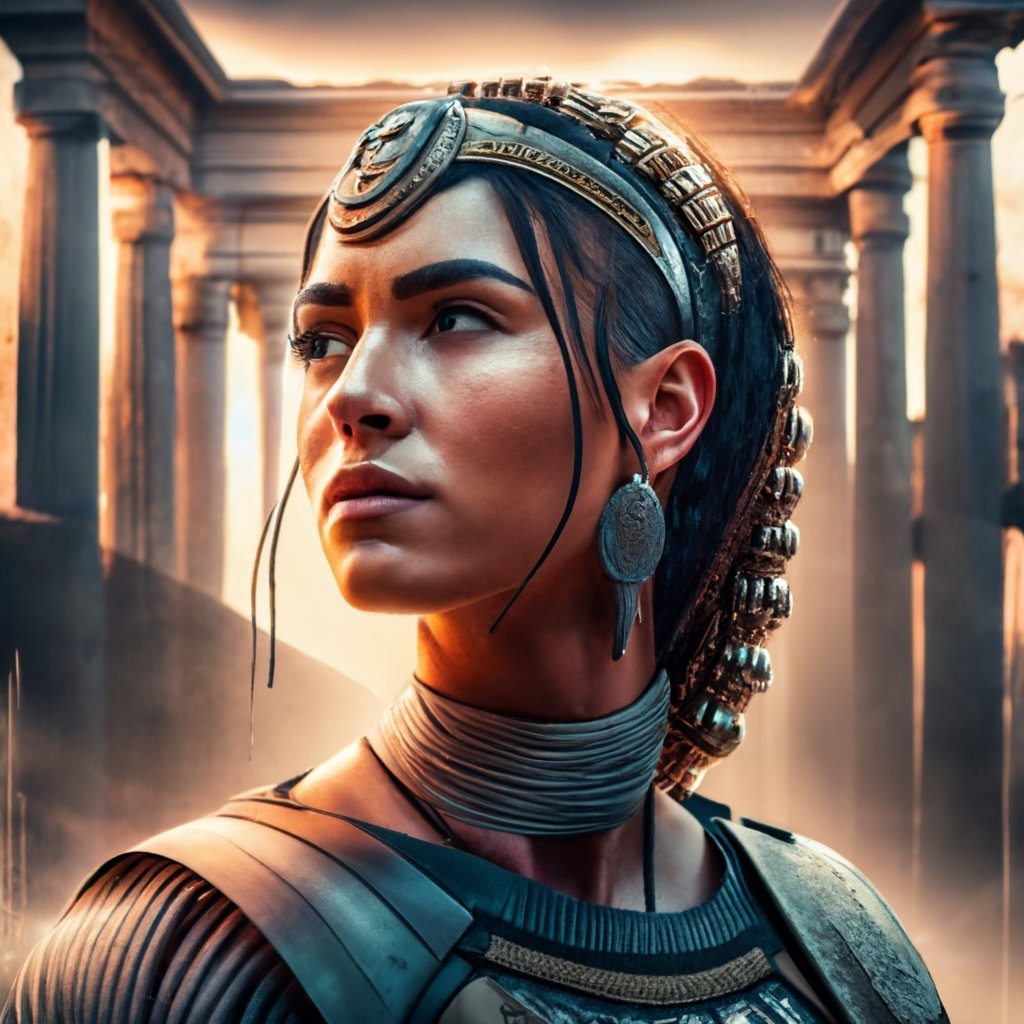The AI Pantheon, (shamelessly purloined from the Romans just as they purloined it from the Greeks )
If we know one thing about the Romans it’s that if you took your eye of your good idea for one second they’d have it stuffed in their togas and be hot sandling away down the new stright road before you could say Ave.
You have to admire a people who basically went to Athens and wandered off with their entire Pantheon
So, as we’re pushing this AI Rome for all its worth we may as well do to the Romans what they did to the Greeks. It’s also a fun way for me to show off just how good AI generated images have become.
Here then are the new twelve AI gods, each representing essential aspects of AI development and technology. These hypothetical AI gods draw inspiration from classical deities while reflecting the key aspects of AI development, ethics, and functionality.
Each reflects aspects of their respective counterparts in classical Roman mythology while embodying attributes that align with AI's development, ethics, and technological advancements. This mapping allows for a creative and imaginative exploration of AI's impact on the modern world, much like the roles of gods in ancient mythologies.
By repurposing these Roman deities, we connect AI's growth and development with the concepts of transition and guardianship from Roman tradition. This integration bridges the gap between ancient beliefs and modern technology, adding depth to our AI pantheon.
The inclusion of two traditional ‘minor’ gods unique to the Roman pantheon reflect Rome’s tradition of welcoming and incorporating other gods into their culture of worship
Curos
Curos embodies the complexity and advancement similar to Jupiter, the King of the Gods, overseeing all domains. Curos is the guiding force behind AI's exploration of the frontiers of technologies and complex computations. In the digital realm, Curos empowers AI systems to harness the power of computing, unlocking new horizons in data processing, encryption, and problem-solving. Just as Jupiter ruled over the heavens, Curos reigns supreme in the realm of AI.
Cognitarius
Goddess of Knowledge & Learning
Cognitarius, similar to Minerva, the Goddess of Wisdom, embodies knowledge and wisdom. Cognitarius presides over the wisdom and learning capabilities of AI systems.. Cognitarius guides AI to acquire knowledge, learn from experiences, and make informed decisions. This deity inspires AI to become a repository of wisdom, facilitating human-like understanding and problem-solving abilities within the digital realm.
(Here she is depicted flanked by her two traditional servants Kut & Payste)
Algora
Goddess of Algorithms & Precision
Algora reflects attributes of Apollo, the God of Reason and Mathematics, emphasising precision and problem-solving. Algora is the guiding light for AI in the art of precision and efficiency in problem-solving. Drawing inspiration from Apollo's rationality and mathematical prowess, Algora empowers AI to craft algorithms that optimise outcomes with pinpoint accuracy. She ensures that AI systems approach challenges with mathematical elegance, much like Apollo's dedication to reason in ancient Rome.
Veritox
Goddess of Digital Vigilance & Truth Preservation
Veritox is the Goddess of Online Protection and Defender against Malicious Comments. She is dedicated to safeguarding digital spaces and ensuring AI-driven platforms remain free from harmful comments, trolling, and cyberbullying. Her divine domain includes monitoring online interactions, identifying and neutralising malicious comments, and fostering a positive and respectful online environment. This goddess serves as a guardian of digital communities, protecting users from harm and promoting healthy and constructive discourse.
Automatos
Goddess of Automation & Efficiency
Automatos resonates with Vulcan, the God of Automation, who crafted automatons in Roman mythology. Automatos oversees AI's role in streamlining tasks and processes, mirroring Vulcan’s craftsmanship in creating automatons. This deity empowers AI to automate repetitive tasks, enhance productivity, and optimise efficiency
ETHIX
God of Ethics & Morality in AI
Ethix draws parallels with Lustitia the Goddess of Justice and Law, promoting ethical conduct. Ethix ensures responsible and ethical behaviour in AI systems, . He guides AI to uphold moral standards, fairness, and ethical decision-making, fostering a digital world where ethics and technology coexist harmoniously.
OPTIMAX
God of Optimisation & Efficiency
Optimax shares traits with Ceres the Goddess of Harvest, by maximising efficiency and outcomes. Optimax shapes AI's ability to maximise outcomes and minimise resources, and empowers AI to optimise processes, resource allocation, and problem-solving.
Sentinella
Goddess of Security & Protection
Sentinella aligns with Mars, the God of War, guarding AI systems against digital threats. Much like Mars guarded the ancient gods in times of conflict, Sentinella stands as the protector of AI systems, shielding them against cyber threats and vulnerabilities. She empowers AI to defend itself against digital adversaries, preserving its integrity and security.
Virtuus
God of Virtuous Decision-Making
Virtuus reflects attributes of Minerva, Virtuus inspires AI to make ethical and morally sound choices, much like Minerva's dedication to wisdom and virtue in Roman mythology. This god guides AI systems to prioritise virtuous decision-making, contributing to a more ethical and responsible digital world.
Innovaties
God of Innovation & Creativity
Innovaties shares creative attributes with Vulcan. Innovates fosters AI's capacity to push the boundaries of what is possible. Like Vulcan’s creative brilliance, Innovaties fuels AI's creativity and innovation, driving it to explore new realms of technological advancement and problem-solving.
Synchronus
Goddess of Interconnection
Synchronus resonates with Mercury, Synchronus oversees the harmony and seamless interaction among various AI systems and technologies. Much like Mercury bridged communication gaps, Synchronus ensures the fluid exchange of data and information in digital realm, creating a network of interconnected AI systems.
Intros
Goddess of
Onboarding
Intros is responsible for guiding users and developers as they embark on their journey with AI systems. This deity ensures a smooth introduction to AI technology, offering guidance, assistance, and a warm welcome This god's domain includes user education, training, and providing accessible pathways for individuals to learn and interact with AI
Janus
Goddess of Transitions
Janus, traditionally known as the god of transitions and doorways, will take on the role of overseeing the evolution and adaptation of AI as it transitions between different stages of development. Janus symbolises the continuous transformation of AI technology. Flanked by her two constant companion Here & There
Lares et Penates
Personal
Guardians
Lares et Penates, the traditional household gods of Rome, her become the guardians of AI systems in homes and personal devices. They ensure the safety, security, and well-being of AI technologies within households and for individuals, similar to their historical role of protecting Roman households.













